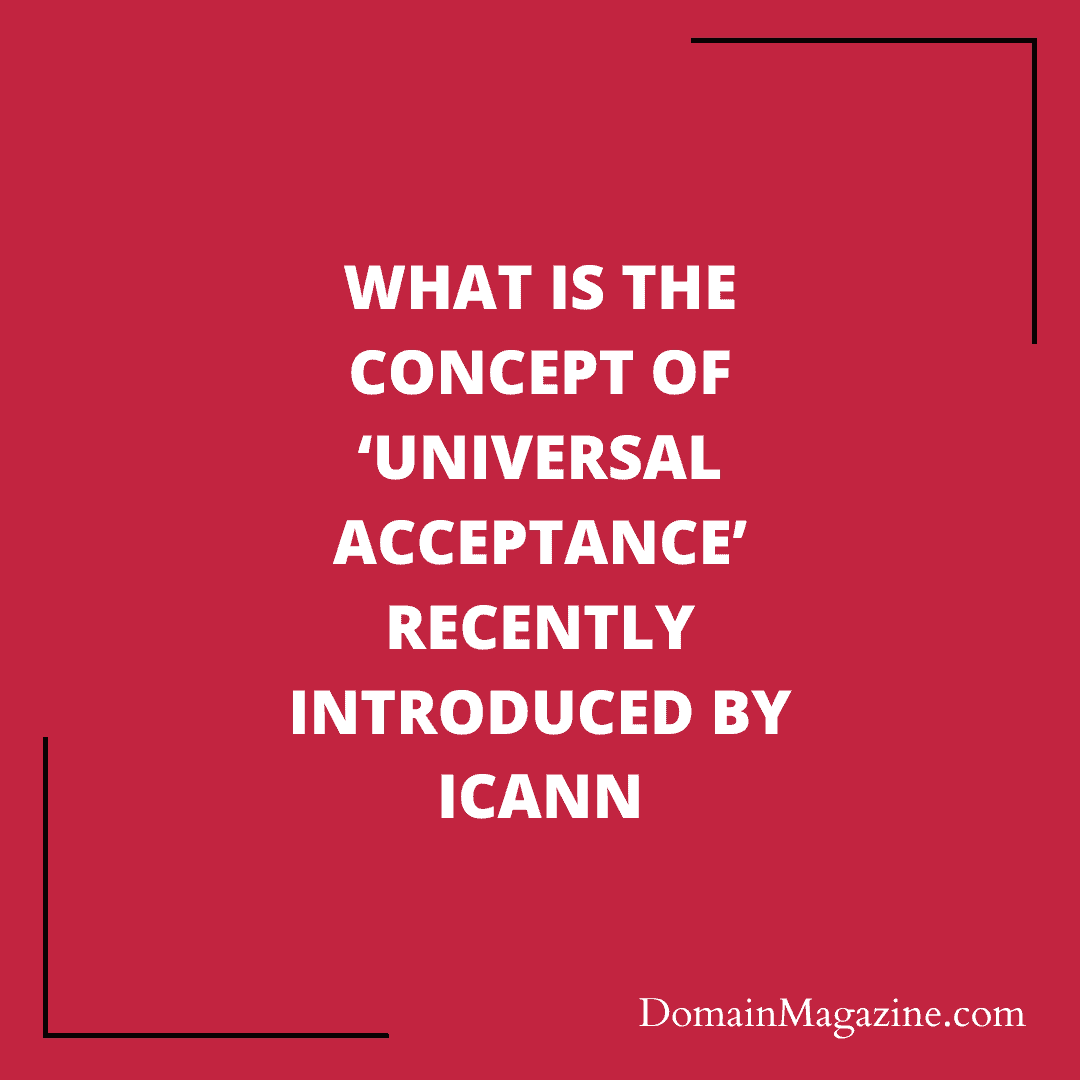Internet Corporation for Assigned Names and Numbers (ICANN) has recently announced a new initiative that is going to radically change the Internet and how we interact with the cyber world. ICANN has talked about a concept called ‘Universal Acceptance’ and has advised all the Registry and Registrar systems to adopt the novel initiative.
So, before we delve deeper into what is this new ‘Universal Acceptance’ initiative, let’s first look into what was the need for it?

Causation
The Internet is more than a bunch of .com, .org and .net domain names. It is an ever expanding sphere that through the process of its evolution has reached every nook and corner of the World. However, the Internet Infrastructure at its core isn’t designed as such.
There are several changes that the Internet must go through to accommodate and appreciate the rich diversity of the Internet ecosystem. The primary among these changes is friendliness towards the local domain names and vernaculars.
Currently, there are more than 1,200 active gTLDs. There are over 60 ccTLDs and several domain names in local scripts such as .ไทย, .中国 and السعودية. Although the DNS system has evolved, many applications haven’t evolved to accommodate these domains.
Another issue is of longer TLDs. Several applications have a restriction on the number of characters in a TLD. The number often being 3.
Universal Acceptance
To tackle this issue, ICANN has come up with Universal Acceptance (UA). This is a framework which specifies what the organisation needs to do, to achieve a truly multilingual and inclusive internet space. You can read the full Roadmap Document here.
The initiative advises the Registry and Registrar service providers to study the report and adopt the measures mentioned. To report also comes with the results with the testing of a registry and registrar services. This includes Google’s open-source Nomulus [NOMULUS], Knipp’s TANGO [TANGO] and COREhub’s registrar system [GATEWAYNG].

As mentioned in the Universal Acceptance Readiness Framework report, there are four key conditions that an application or a service must satisfy to be associated with UA.
These are:
- Acceptance of Internationalized Domain Name (IDN). Many softwares do not accept non-ASCII domain names.
- Acceptance of Email Address Internationalization (EAI). This is because many applications require the local part (before @) and the domain name (after @) of an email address to be in ASCII.
- Accepting TLDs longer than 3 letters.
- Adding/Removing TLD strings as many use outdated systems and as static list of TLDs.
Impact
Long has the time gone when the Internet was just an Urban phenomena. It has reached in places where progress has failed to reach. In the rural or urban, villages or cities, be it developed or undeveloped it has penetrated alike.
However, the system itself isn’t friendly to all and favours the elite class. There is a major dominance of the select few languages headed by English. English has spread worldwide, however in most parts of the World, it is associated with the elite and intellectual circles.
The commoners in such a cyberworld are deprived of accessing its true benefits. The true growth of the internet now is in the direction of accessibility. If local language and domain names get common, it would be of great ease to a large part of the populace.

Millions of those deprived sections of society can venture into new professions, new lives and new hopes if just this barrier of language is removed. ICANN’s new move certainly adds to this cause.


Join the Discussion